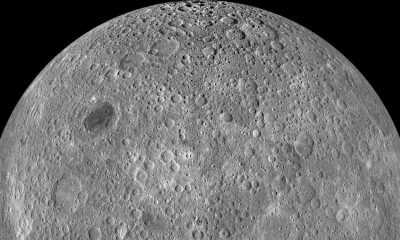 Smog in Beijing.Kevin Frayer/Getty Images
Smog in Beijing.Kevin Frayer/Getty Images
We are running out of time to prevent catastrophic effects of climate change from reshaping our world.
That’s the message of the latest report by the Intergovernmental Panel on Climate Change (IPCC), which found that the world will start to experience some of the most severe effects of climate change once the planet warms 1.5 degrees Celsius over pre-industrial temperatures.
Human activity has already caused Earth’s temperature to rise about 1 degree C, and another half-degree will make the effects we’re already seeing much worse. Drought-prone regions will be much more likely to experience severe drought, and areas prone to heat waves or intense hurricanes will get more of those disasters, too. As glaciers melt and oceans expand, seas will continue to rise. These factors could trigger huge migrations of people and mass extinctions of animals. Most coral reefs will die, which could trigger rippling effects throughout the oceans.
Nations around the world pledged in the Paris agreement to try to prevent temperatures from rising more than 2 degrees by 2100. But this latest IPCC report found that the world is likely to cross the 1.5 degree barrier by 2040, with more than 3 degrees C of warming possible by 2100.
Preventing the world from crossing into that danger zone is still possible, but it’d require immense changes that are politically and practically unlikely. We’d have to cut greenhouse gas emissions 45% by 2030 compared to what they were in 2010. By 2050, we’d have to reduce emissions to zero.
Doing that would require an immediate, massive, coordinated transformation of the global economic system — especially the energy system — on a scale the world has never seen, the report authors said.
Since there’s almost no chance of that happening, the world may resort to forms of geoengineering: implementing technologies that could modify Earth’s atmosphere, seas, or skies in an attempt to cool the planet.
“Nothing suggests world will come close to meeting this goal on climate change,” Richard Haass, the president of the Council on Foreign Relations, said on Twitter. “There is no US leadership, and the phrase ‘international community’ is more rhetoric than reality. We’d better set aside $ for adaptation and accelerate R&D on geoengineering.”
No geoengineering technologies are ready yet for widespread use, and some of the methods are highly controversial — some experts even think their use could lead to global war. But the IPCC and other global organizations expect we’ll need to resort to geoengineering to some degree.
Here’s how humanity might try to transform the planet in order to survive.
The IPCC thinks it’s likely that we’ll need to use carbon-capture technology that can suck carbon dioxide out of the air and store it underground.
A facility made by Climeworks AG to capture CO2 from the air is seen on the roof of a waste incinerating plant in Hinwil, Switzerland.Arnd Wiegmann/Reuters
There are various ways to remove carbon from the atmosphere, ranging from simple, age-old approaches like planting trees to unproven advanced technologies.
New methods of carbon capture could involve trapping carbon emitted at power plants and storing it underground (a technique known as carbon capture and sequestration) or simply sucking CO2 out of the air and storing it (a concept known as direct air capture).
Futuristic as these technologies sound, they do exist — at least, in prototype forms. And it’s quite possible that we’ll need to use them. But unfortunately, the methods are far too expensive (or inefficient) to use on large scales, and it wouldn’t make sense to implement them without putting a hefty price on carbon.
As the IPCC report says, “the effectiveness of such techniques are unproven at large scale and some may carry significant risks for sustainable development.”
For these strategies to really help, they’d have to be improved and made economically viable before we heat the planet too far.
Some scientists think we could cool the planet with techniques that fall under the category of solar radiation management: limiting the heat Earth absorbs from the sun.
One of the most discussed forms of solar radiation management takes a cue from volcanoes.Andri Tambunan/Getty Images
One of the most discussed forms of this technology takes a cue from volcanoes. When volcanoes erupt, the sulfur they pump into the sky reflects some of the sun’s radiation back into space for a while. Artificially filling the sky with sulfur, therefore, could lead Earth to absorb less warmth from the sun’s rays.
If humanity were to send planes to regularly release sulfur or some other chemical that reflected light into the stratosphere, this could cool the planet for as long as the flights continued. A number of researchers are studying and cautiously experimenting with this idea.
But it could come with serious drawbacks.
You can see how this strategy modifies the natural greenhouse effect — and the global warming effect caused by carbon dioxide emissions from fossil fuels — in the infographic below.
But solar radiation management could cause devastating side effects.
Some researchers fear that modifying the skies could change conditions on Earth so drastically that war would erupt between nuclear powers.
For example, any country with an air fleet might decide that releasing clouds of sulfur is necessary. But doing so would change atmospheric conditions around the globe, creating droughts or waves of particularly intense hurricanes in unpredictable areas. The sulfur or other chemicals released into the sky could also potentially cause side effects for people or wildlife.
Another geoengineering method that sometimes gets discussed but would be hard to control involves dumping iron into the ocean.
US Navy/Mass Comm Specialist 2nd Class Sarah Myers
In theory, dumping large quantities of iron into the ocean might cause phytoplankton to bloom, which might then suck carbon out of the atmosphere.
“Give me a half tanker of iron, and I will give you an ice age,” oceanographer John Martin famously said in 1988.
But no one knows if this technique would work effectively, or if it would just create massive dead zones in the ocean where nothing but algae can survive.
People could also geoengineer Earth’s oceans by covering large parts of their surfaces in white foam.
Getty/MKnighton/Abu Dhabi Ocean Racing
Covering large parts of the ocean in foam could help reflect sunlight and heat away from the planet, the same way sea ice in the Arctic does.
But as a recent study on ocean solutions to climate change found, this strategy would only have a useful effect for as long as the foam lasted, meaning it might have to be replenished daily or weekly. And covering the ocean with a layer of foam could have deadly effects on marine life.
As a last-ditch effort to avoid catastrophic sea-level rise, some scientists have suggested propping up parts of the Antarctic ice shelf.
Sea levels are already rising rapidly, threatening to swamp cities like Miami within the lifetimes of people alive today. If the sheets of ice that sit on top of Antarctica and Greenland were to collapse, the rate of sea-level rise could skyrocket. That would make coastal cities uninhabitable and destroy trillions of dollars’ worth of property and infrastructure.
To prevent or slow that coastal flooding, people could build massive walls under the ice sheets to prevent them from falling apart, according to a study published last month in The Cryosphere, a journal of the European Geosciences Union.
That would be the biggest civil-engineering project ever attempted in human history, yet it might prevent devastating floods that could force tens or hundreds of millions of people to move.
Plus, no geoengineering solution would fully solve the root cause of climate change.
Regardless of which geoengineering scheme people might someday invent or try, some consequences of climate change will likely continue. That’s because many geoengineering proposals don’t directly address the root cause of global warming.
Our food, energy, and transportation systems pump carbon dioxide and other greenhouse gases into the atmosphere, and will continue to do so unless we eliminate those emissions. Those gases will keep trapping heat from the sun, raising average temperatures on land and in the ocean, and causing the sea to become more acidic.
So even if planes release sulfur into the sky, warming would shoot back up when those flights stopped. Building a wall under ice sheets wouldn’t address the other effects of climate change. And covering the sea surface in foam wouldn’t end ocean acidification, which is caused by carbon dioxide.
The simplest way to maintain the stable climate that has allowed modern human civilization to thrive is to end our original geoengineering experiment: releasing unprecedented amounts of heat-trapping gas into our planet’s atmosphere.
 Smog in Beijing.Kevin Frayer/Getty Images
Smog in Beijing.Kevin Frayer/Getty Images














































